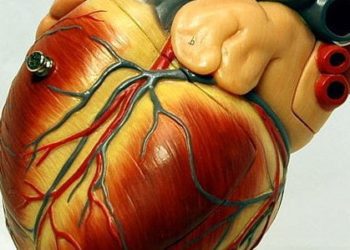The WARSS trial: Warfarin vs aspirin in preventing recurrent ischemic stroke [Classics Series]
Image: PD
1. Warfarin is not superior to aspirin in preventing recurrent ischemic stroke in patients with a prior noncardioembolic ischemic stroke
2. There was no significant difference in the rates of major hemorrhage when comparing warfarin with aspirin
Original Date of Publication: November 15, 2001
Study Rundown: Previous studies had shown that warfarin was associated with lower rates of embolic stroke than aspirin in patients with atrial fibrillation. Additionally, while aspirin was the treatment of choice for the prevention of recurrent events in noncardioembolic ischemic strokes, a substantial rate of recurrence was observed clinically. The WARSS trial therefore sought to investigate whether warfarin may be superior to aspirin in the prevention of recurrent ischemic stroke in patients with prior noncardioembolic strokes.
The study showed no significant difference between warfarin and aspirin in the prevention of recurrent ischemic strokes. In other words, warfarin did not decrease the rate of recurrent stroke in patients with a prior noncardioembolic stroke, as it does for patients with atrial fibrillation. Because the WARSS study was only powered to detect a 30% relative reduction in primary outcome, it is possible that the study was underpowered to detect more modest treatment effects. Additionally, while there was no difference in rates of major hemorrhage (e.g., intracranial, intraspinal, dural/epidural bleeding) between aspirin and warfarin use, patients on warfarin had significantly more minor hemorrhages (e.g., gastrointestinal bleeding, ecchymoses).
In summary, the results of the WARSS trial suggest that aspirin is a reasonable choice for prophylaxis against recurrent noncardioembolic ischemic stroke, given that warfarin requires closer monitoring, without being more efficacious.
Please click to read study in NEJM
In-Depth [randomized, controlled study]: Published in NEJM in 2001, the WARSS trial was a randomized, double-blinded clinical trial conducted in 48 academic centers in the U.S. A total of 2,206 patients aged 30-85 with a noncardioembolic ischemic stroke within the previous 30 days and scores of 3 or more on the Glasgow Outcome Scale were randomized to receive warfarin (dosed to a target INR of 1.4-2.8) or aspirin (325 mg daily). The primary endpoint was death from any cause or recurrent ischemic stroke. Rates of major hemorrhage (e.g., intracranial, intraspinal) and minor hemorrhage (e.g., gastrointestinal, ecchymoses) were also recorded. There was no significant difference between the warfarin and aspirin groups in the time to the primary endpoint (HR 1.13; 95%CI 0.92-1.38). There was also no difference in the rates of major hemorrhage (P=0.10), though rates of minor hemorrhage were significantly higher in the warfarin group (P<0.001). Finally, there was no significant difference in time to the primary endpoint due to patient differences in gender, ethnicity, or subtype of prior stroke.
By Evan Chen and Andrew Cheung, M.D.
© 2013 2minutemedicine.com. All rights reserved. No works may be reproduced without written consent from 2minutemedicine.com. Disclaimer: We present factual information directly from peer reviewed medical journals. No post should be construed as medical advice and is not intended as such by the authors or by 2minutemedicine.com. PLEASE SEE A HEALTHCARE PROVIDER IN YOUR AREA IF YOU SEEK MEDICAL ADVICE OF ANY SORT. Content is produced in accordance with fair use copyrights solely and strictly for the purpose of teaching, news and criticism. No benefit, monetary or otherwise, is realized by any participants or the owner of this domain.







